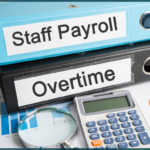Employers have always struggled with balancing an employee’s right to voice his or her complaints about issues in the workplace against the employer’s right to protect the business’s goodwill. The proliferation of social media has only exacerbated this touchy issue; now, an employee’s grumble can potentially be viewed by millions of people simply by the sending of one post or tweet.
Federal regulations are in place to prevent employers from outright prohibiting employees from posting negative comments on social media. Thankfully for employers, however, there are manners in which employees can be limited in what they post on social media regarding their employment.
Below are specific rules that detail what an employer can and cannot do in policing employees’ use of social media in the employee handbook.
Ways Employers CAN Regulate Employees’ Social Media Use
- Prohibiting employees from disclosing the company’s confidential, proprietary, or trade secret information, including information concerning the company’s clients or customers.
- Requiring employees who post about their employer to make it clear that they are an employee of the company but are not speaking on behalf of the company as an official representative. Specifically, employers can require employees’ social media page to include a disclaimer (e.g., “tweets my own” or “views my own”).
- Prohibiting employees from posting any discriminatory, defamatory, or harassing content. Employers can generally set requirements for “harmonious relationships” in the handbook that require employees to uphold basic standards of “civility” when posting online.
- Prohibiting employees from using the company’s logo, trademark, or other graphics without prior written approval.
- Prohibiting employees from disclosing protected personal information about other colleagues and co-workers unless employees have prior written consent.
- Prohibiting employees from taking or sharing photos of the company’s non-public areas (e.g., conference rooms, break rooms) or internal meetings. General prohibitions on photography and recording in the workplace are permissible.
Ways Employers CAN’T Regulate Employees’ Social Media Use
- Requiring employees to use their real names in social media profiles when discussing issues related to the workplace.
- Prohibiting employees from making any sort of disparaging or negative remarks about the company.
- Prohibiting employees from discussing wages, benefits, or working conditions.
- Prohibiting employees from making any sort of false of inaccurate statements. However, employers may prohibit “maliciously false” statements.
Further, the National Labor Relations Board (“NLRB”) recommends a “savings clause” in social media policies within employee handbooks. For example, CVS’s social media policy included the following savings clause, which the NLRB found to be helpful in protecting the company from exceeding its authority to regulate its employees’ social media use:
Nothing in this policy is meant to limit your legal right to use social media to speak about your political or religious views, lifestyle and personal issues, working conditions, wages, or union-related topics or activities with others inside or outside the Company, or to restrict any other legal rights.
This policy is not intended to interfere with any rights provided by the National Labor Relations Act.
Nevertheless, the NLRB found the above savings clause to not be comprehensive. Thus, employers should always be vigilant in crafting and enforcing social media policies in their employee handbooks.
For individualized guidance, please contact KDDK attorney Jordan Heck at jheck@KDDK.com or (812) 423-3183, or contact any member of the KDDK Labor and Employment Law Practice Team.




